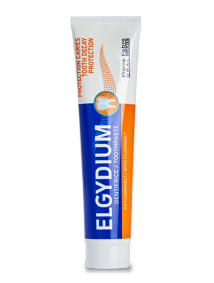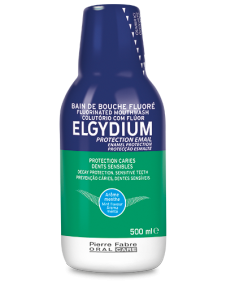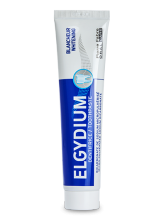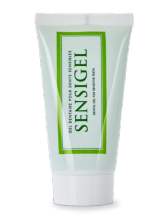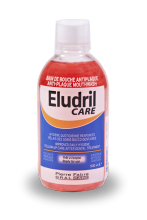Tooth decay: the importance of prevention
What is tooth decay?
What exactly are dental cavities?
Tooth decay, or caries, are dental cavities that are eaten into the teeth by bacteria. Tooth decay causes toothache, and can result in destruction of the tooth. Tooth decay appears when the enamel that protects the tooth becomes eroded by acidic substances produced by the bacteria in dental plaque. It also arises when the root of a tooth, which is not protected by enamel, is exposed to these acids by receding gums.
What are the signs of tooth decay?
The first sign is often hypersensitivity to acidic, hot or cold food. Initially, decayed teeth only react to hot and to cold, and pain is transient ? although this varies greatly from one individual to another.
When the decay reaches the dental pulp (at the centre of the tooth), infection can set in, with intense throbbing and pulsating pain.
Yellow or brown discolouration may also indicate tooth decay.
What are the complications of tooth decay?
A decayed tooth will not heal by itself. Without effective treatment, an abscess (collection of pus) will sometimes form, causing pain, a high temperature and swelling of the face or mouth on the side of the damaged tooth. The infection can even become generalised and cause serious problems.
In every case, without treatment, the decayed tooth will gradually be destroyed and will need to be extracted.
What are the causes of tooth decay?
The role of dental plaque in tooth decay
Tooth decay is an infection caused by the bacteria in the mouth. The bacteria attach themselves to the teeth in the form of dental plaque, a deposit that adheres to the enamel. They digest the sugars present in the mouth and on the teeth, producing acids that erode the enamel over time.
When these acids reach the dentine (the substance that forms the main part of the teeth), they cause demineralisation. A cavity forms in which the bacteria proliferate, triggering a vicious circle.
The role of gum disease in tooth decay
Gum disease (gingivitis, periodontitis), which are fairly common in adults, tends to cause the part of the gums that protects the root of the teeth to recede. The neck of the tooth (where the root joins the external part of the tooth) is then exposed to the bacteria that are responsible for tooth decay. The root and the neck of the tooth have no enamel protection, so the acids produced by these bacteria will quickly attack the dentine and create a cavity.
How can tooth decay be prevented?
1. Follow a comprehensive oral hygiene routine every day
In adults, preventing tooth decay is essentially based on:
- avoiding the formation of dental plaque (the film of bacteria that secrete acidic substances);
- strengthening the tooth enamel and dentine with fluoride salts, making them more resistant to acid attacks.
This requires brushing your teeth two or three times a day with a fluoride toothpaste and cleaning between the teeth with dental floss or interdental brushes.
2. Choose a toothpaste containing fluoride
Fluoride is good for solid enamel and dentine. It also reinforces the results of brushing by hindering bacterial activity in dental plaque. There is a wide variety of fluoride-enriched toothpastes with different concentrations. Fluoride concentration is expressed in ppm (parts per million, or mg/kg).
In adults, for daily oral care, dentists recommend using a toothpaste containing 1500 ppm fluoride. Certain fluoride salts, for example Fluorinol©, are taken up more quickly by the enamel. ELGYDIUM Tooth Decay Protection toothpaste contains 1500 ppm Fluorinol©, as well as siliglycol which helps the surface of the teeth to absorb the fluoride.
Brushing can be supplemented with a fluoride mouthwash, for example ELGYDIUM Enamel Protection.
3. Use dental floss or interdental brushes
The spaces between the teeth often go untouched by toothbrushes. To remove food particles and dental plaque that are hidden there, use interdental brushes that are suited to the size of the space between two teeth, or dental floss, which is available with fluoride for enhanced action on dental plaque (for example, INAVA Dentofil Fluor). This type of routine is especially beneficial when the necks of the teeth are exposed.
4. Select an effective toothbrush that will not damage the enamel
To eliminate dental plaque, use a toothbrush that gets right into the hard-to-reach areas but is gentle on the enamel. Toothbrushes with rounded bristles that are laid out in different directions are particularly suitable for preventing dental plaque, for example the ELGYDIUM Diffusion or ELGYDIUM Anti-Plaque toothbrushes.
5. Regular visits to the dentist
You should make an appointment with your dentist at least twice a year to make sure that dental plaque is not forming tartar (and have any built-up tartar removed if necessary), and to identify any incipient tooth decay.
It is also an opportunity to find out more about oral hygiene and the products and instruments to use in order to prevent tooth decay.
Adult tooth decay prevention
In adults, tooth decay can be prevented by strengthening the enamel with fluoride and through good oral hygiene to inhibit the build-up of plaque on and between the teeth.
See the program